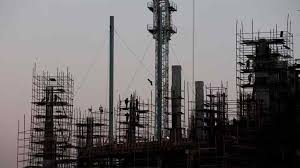MUMBAI (Reuters): A high real interest rate in India could prevent private investments from picking up and hold the country back from achieving its true growth potential, an external member of the monetary policy committee said on Friday.
Professor Jayant Varma, who was the sole dissenter at the February monetary policy meeting when the MPC held rates steady at 6.50 per cent, voted for the repo rate to be cut by 25 basis points.
“India’s growth is robust when compared to the rest of the world, but not when compared to our potential or to our aspirations,” Varma said in an interview.
“When 4.25pc average growth rate since the pandemic is touted as robust growth rate, that reflects a grave lack of confidence in India’s growth potential. I do not subscribe to this growth pessimism.”
The Indian economy is expected to expand 7.3pc in the current fiscal year ending March and the central bank has projected growth of 7pc in 2024-25, in line with the government forecast.
Varma said the potential growth rate of the economy is at least 8pc – based on all the reforms and infrastructure investment in recent years and there is still some growth required to close the post-pandemic output gap.
The rationale cited by other MPC members for status quo on rates was to ensure inflation reaches the target of 4pc on a durable basis with supply chain disruptions and food price shocks still a risk amid the continued geopolitical tensions.
“I am somewhat more optimistic about disinflation than the rest of the MPC, but that is not the main point of my dissent,” Varma said.
“My point is that the MPC’s own projections of 4.5pc for 2024-25 (on inflation) with risks evenly balanced do not warrant a repo rate of 6.5pc.”
India’s annual retail inflation rate touched a three-month low of 5.10pc in January versus December’s 5.69pc.
Separately, Varma said the overnight cash rate breaching the monetary policy corridor represents serious frictions, if not a failure in monetary policy transmission. “It is good that this failure is now being corrected.”







